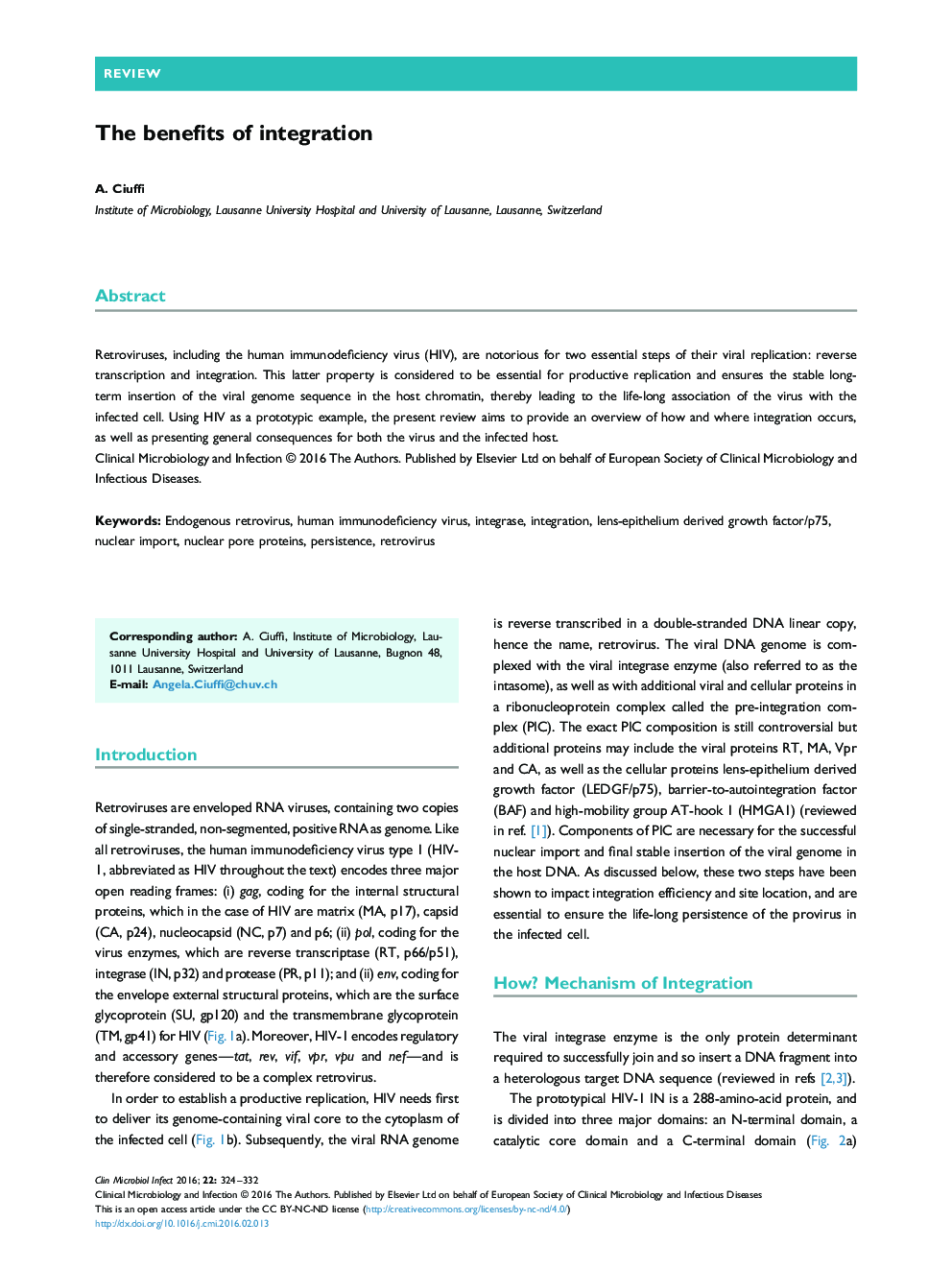| Article ID | Journal | Published Year | Pages | File Type |
|---|---|---|---|---|
| 6128881 | Clinical Microbiology and Infection | 2016 | 9 Pages |
Abstract
Retroviruses, including the human immunodeficiency virus (HIV), are notorious for two essential steps of their viral replication: reverse transcription and integration. This latter property is considered to be essential for productive replication and ensures the stable long-term insertion of the viral genome sequence in the host chromatin, thereby leading to the life-long association of the virus with the infected cell. Using HIV as a prototypic example, the present review aims to provide an overview of how and where integration occurs, as well as presenting general consequences for both the virus and the infected host.
Keywords
Related Topics
Life Sciences
Immunology and Microbiology
Microbiology
Authors
A. Ciuffi,
